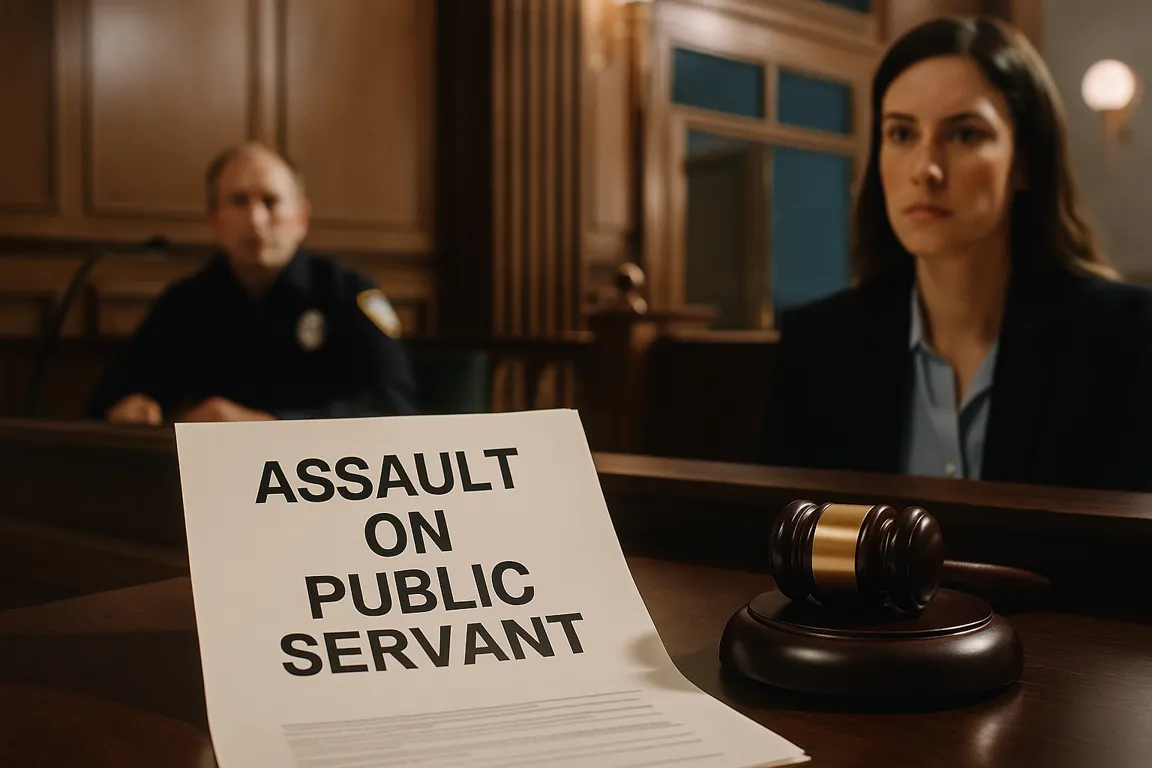

Simple Assault Charges: Texas Laws and Penalties

Simple Assault Charges: Texas Laws and Penalties (Class C and A)
Simple Assault in Texas: It’s More Serious Than You Think
Many people mistakenly assume that simple assault — the lowest level of assault charge in Texas — is no big deal. But under Texas Penal Code § 22.01, even a verbal threat or minor physical contact can result in a criminal record that affects your job, your family, and your future.
In this post, we’ll break down the two primary types of simple assault in Texas: Class C and Class A misdemeanors, explain the legal thresholds, and show you the real-world consequences of these charges.
Whether you're facing charges or just trying to understand the law, you’ll find clear explanations, examples, and advice on when to call an attorney near you.
1. Class C Misdemeanor Assault — The Lowest Level, But Still Criminal
Legal Definition (Texas Penal Code § 22.01(a)(2)–(3))
- Threatening another with imminent bodily injury, or
- Causing offensive or provocative physical contact
Common Scenarios:
- Verbal threats during a heated argument
- Shoving someone without injury
- Poking, slapping a hat off, or grabbing a shirt collar
- Workplace or school disputes
Penalties:
- Fine up to $500
- No jail time
- Criminal record remains unless dismissed or expunged
Where Are Class C Cases Handled?
- Municipal Courts
- Justice of the Peace (JP) Courts
Even though there's no jail time, Class C assault is still a criminal charge, and hiring a lawyer near youcan help prevent long-term consequences or negotiate dismissal.
2. Class A Misdemeanor Assault — When Injury Is Alleged
Legal Definition (Texas Penal Code § 22.01(a)(1))
- Intentionally, knowingly, or recklessly causing bodily injury to another person
“Bodily injury” in Texas means any physical pain, illness, or impairment, and even minor soreness, redness, or bruising meets this threshold.
Common Scenarios:
- A slap or punch that causes pain
- Shoving someone who later claims injury
- Domestic arguments that turn physical
- Altercations at bars, events, or workplaces
Penalties:
- Up to 1 year in county jail
- Up to $4,000 fine
- Probation or community supervision possible
Where Are Class A Cases Handled?
- County Criminal Courts, including Harris County Criminal Court at Law and Fort Bend County Criminal Court
Even if the injury is slight, prosecutors take Class A assaults seriously, especially if there’s a history of conflict or prior arrests. You need an experienced attorney near you to begin defense strategy immediately.
3. Assault – Family Violence (Class A with Enhanced Consequences)
What Makes It Family Violence?
When the alleged victim is:
- A spouse, dating partner, cohabitant, relative, or
- Parent of your child, even if not cohabiting
The charge becomes Assault – Family Violence, still a Class A misdemeanor but with severe collateral consequences, including:
- Lifetime federal firearm ban under 18 U.S.C. § 922(g)(9)
- Protective orders
- Impact on child custody cases
- Record cannot be sealed
Penalty Range:
- Same as standard Class A assault, but with lasting legal implications
See an attorney near you immediately if you've been arrested or cited in a family violence case. These charges are aggressively prosecuted in counties like Harris and Fort Bend.
4. Deferred Adjudication and Pretrial Options for Simple Assault
Many first-time offenders may be eligible for:
- Deferred adjudication
- Pretrial diversion
- Anger management or counseling programs
These options may help avoid a conviction, but still carry risks if not structured properly.
Warning: In family violence cases, even deferred adjudication often still results in a permanent family violence finding, unless your lawyer near you negotiates otherwise.
5. Can Simple Assault Charges Be Expunged or Sealed?
Expunction Possible If:
- Case is dismissed
- You’re found not guilty
- You complete Class C deferred disposition
Nondisclosure (Record Sealing) Possible If:
- You complete deferred adjudication on a non-family violence Class A assault
Family violence assault cannot be sealed or expunged, even without a conviction.
Only a knowledgeable attorney near you can evaluate your eligibility and file the proper motions in civil court.
6. How a Lawyer Near You Can Help Fight Simple Assault Charges
Simple assault cases often depend on:
- Witness credibility
- Injury documentation
- Intent
- Prior history
- Police body cam footage
- 911 recordings (admissible under Tex. R. Evid. 803(2))
A strong lawyer near you will:
- Investigate evidence early
- Negotiate pretrial dismissals
- Challenge weak accusations
- Pursue diversion or expunction options
Final Tip: Don’t Take Simple Assault Charges Lightly
Whether it’s a citation for verbal threats or an arrest for a minor altercation, simple assault charges in Texas can have lifelong consequences — especially if mishandled early.
At Walker Law Office, we defend clients facing Class C and Class A assault charges in Harris County, Fort Bend County, Galveston County, and surrounding areas. We understand how prosecutors treat these cases — and how to protect your record.
Call Walker Law Office today at (713) 228-2611 or visit https://www.walkerlawhouston.com/contact/ to speak with a criminal defense attorney near you.

Charged with aggravated assault in Texas? Learn what it means, what penalties you face, and how a lawyer near you can protect your rights.
Read More...
Learn how Texas defines assault with a deadly weapon, what the penalties are, and how a lawyer near you can help fight felony charges.
Read More...
Learn how Texas law enhances assault charges against public servants like police, EMTs, and teachers. Contact a lawyer near you today to protect your record.
Read More...

